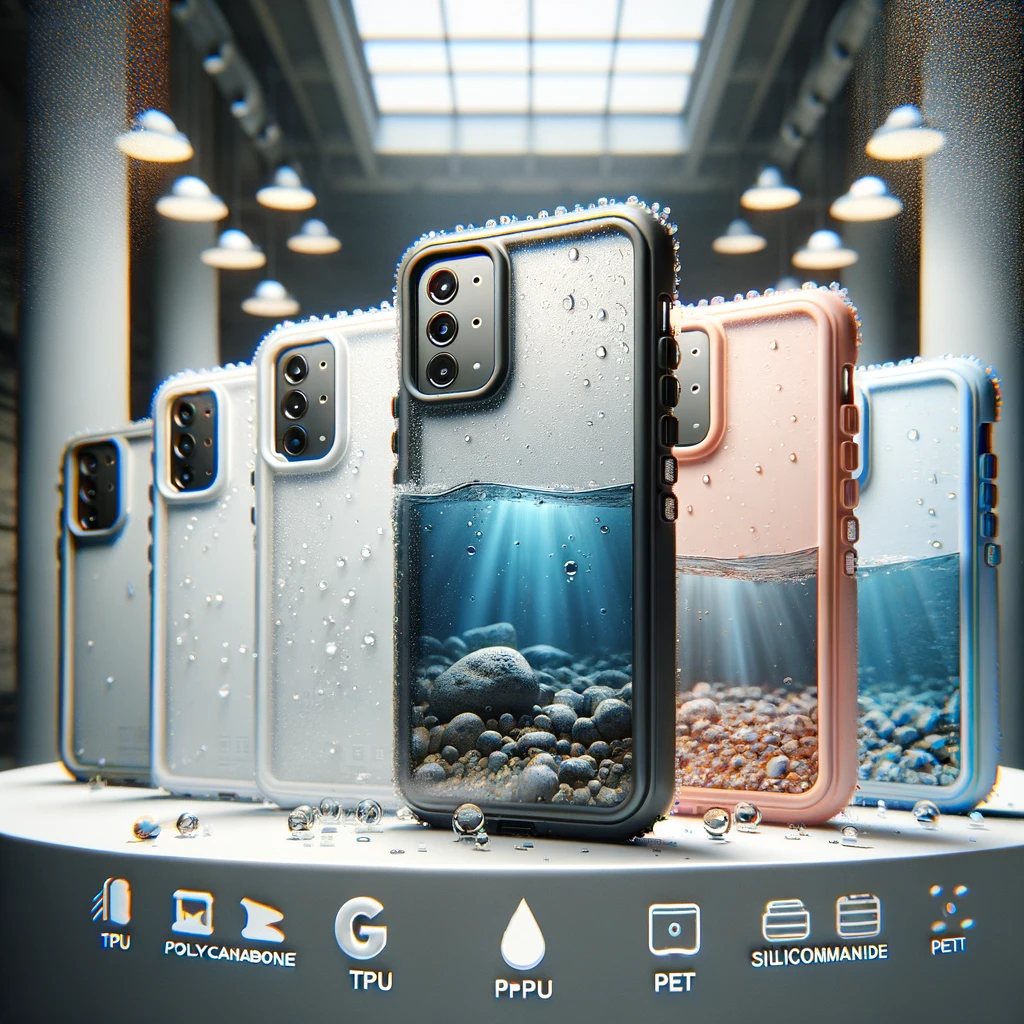Blog
Waterproofing 101: Understanding Phone Case Materials
Introduction
When it comes to protecting your mobile device from water, dust, and drops, the material of the phone case is crucial. At Coral Case, we understand that Australian consumers seek functionality, style, and durability in their phone cases. This comprehensive guide delves into the various materials used in waterproof phone cases, helping you understand which material might be the best for your iPhone, Samsung, Google Pixel, or iWatch.
Understanding Waterproof Materials
1. TPU (Thermoplastic Polyurethane): TPU is a highly flexible, durable, and resistant material ideal for waterproof cases. It’s a type of plastic that combines the best properties of rubber and plastic, offering flexibility and resistance to oils and grease. TPU cases are known for their shock absorption capabilities and are often used in rugged phone cases designed for outdoor activities.
2. Polycarbonate (PC): Polycarbonate is another popular choice for phone cases, known for its strength and impact resistance. It is a rigid thermoplastic that can withstand extreme conditions, making it ideal for waterproof and heavy-duty cases. Polycarbonate can also be combined with other materials like silicone to enhance the protective features of a phone case.
3. Silicone: Silicone cases are renowned for their soft texture and flexibility. They provide excellent shock absorption and have natural water-resistant properties, making them a good choice for general waterproofing. Silicone also has the advantage of being highly adaptable, fitting snugly around devices and providing a non-slip grip.
4. PET (Polyethylene Terephthalate): While PET is commonly used in screen protectors, it also plays a role in waterproof phone cases. It is lightweight and resistant to impacts and scratches, making it useful for cases that need to maintain a slim profile while offering water resistance.
5. Hybrid Cases: Hybrid cases combine multiple materials, typically a mix of hard polycarbonate shells and soft TPU or silicone liners, to provide ultimate protection. These cases offer the benefits of both materials: the rigidity and durability of polycarbonate and the shock absorption of TPU or silicone.
The Role of IP Ratings in Waterproof Cases
Understanding the IP (Ingress Protection) rating is crucial when selecting a waterproof phone case. The IP rating system provides a means to quantify the level of protection against solids (like dust) and liquids. For instance, an IP68-rated case provides complete protection against dust and long-term immersion in water under specific conditions, ideal for most user needs in Australia.
Choosing the Right Material
When selecting a phone case, consider the conditions in which your device will be used. For beachgoers or those involved in outdoor water sports, a fully waterproof case with an IP68 rating made from materials like TPU or a hybrid combination might be the best choice. For everyday use where occasional splashes are the only concern, silicone or PET could suffice.
Environmental Considerations
With growing environmental concerns, the recyclability of materials like PET is a significant advantage. It’s essential to consider the environmental impact of your phone case material, especially if sustainability is a priority for you.
Conclusion
Each material used in the manufacture of phone cases has its own set of strengths and ideal use cases. At Coral Case, we offer a wide variety of waterproof cases tailored to meet the needs of every Australian. From the rugged adventurer needing a case that can withstand the harsh Outback conditions to the casual user needing protection against daily mishaps, our selection provides the perfect blend of style, functionality, and protection.
Explore our extensive range of waterproof phone cases at coralcase.com.au and find the perfect protection for your device.

